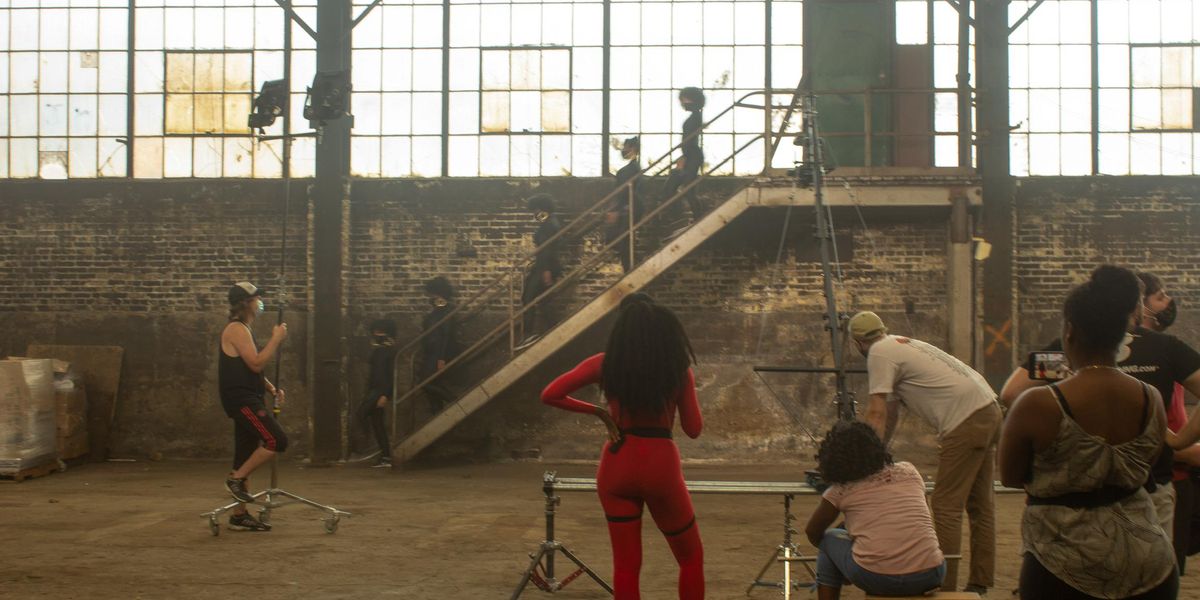What Does It Take to Carve Out a Career in Dance Filmmaking?
The past year’s worth of pandemic-influenced art has convinced many dance artists to try their hands at filmmaking for the first time—and subsequently find out they have a knack for it. But what does it take to make a career out of dance filmmaking? The answer isn’t simple, but the necessary skills are, luckily, ones dancers tend to possess in spades: innovative thinking, a readiness to don several different hats, and an eye for creative funding.
Work With What You Have
For any burgeoning dance filmmaker, the emphasis shouldn’t be on acquiring fancy equipment or waiting to realize a project until you’ve acquired every dream location or resource. “A big part of surviving as an independent maker in film is learning how to utilize the resources you have,” says Omri Drumlevich, dance filmmaker and former Batsheva Dance Company member. “It’s not about equipment, at least not in the beginning. It should be about feeding the beasts of curiosity and joy of making.”
Even if you just have an iPhone, you can practice shots, or get used to editing on Adobe, says Jade Charon, who released her dance film, Gold, about a Black female superhero, last fall. “The more I understand what I’m doing,” she says, “the more I’m able to articulate that to someone else once I have the opportunity.”
Spend Time on Set
Taking on freelance gigs in the film industry—dance or otherwise—offers an immediate benefit: experience on set. “The more time you have on set watching and learning, the more you get a sense of what you like and what you want to see in your own work,” says Celia Rowlson-Hall, who’s created her own feature-length hybrid dance film, MA, and choreographed for the TV show “Girls.”
No job is too small, says Drumlevich: “Whether you’re the production assistant or the producer, the talent or the director, I recommend having an open mind on set.”
It’s also a chance to establish a reputation as someone game, reliable and available for hire. “All of my gigs have been through word of mouth
or people seeing my work and then asking me to come onto a project,” says Charon. For instance, a music video directing gig led to another job directing an election-related commercial for the same producers. “When they saw what I was able to create, they asked me to work on other projects,” she says.
Along the way, you’ll get the added benefit of cultivating lasting relationships with people you click with as a filmmaker. “Finding your cinematographer, your producer, the dancers you really want to work with—that’s what will take you to the next step,” says Drumlevich.
Keep Being a Student
There’s no one set course to make a career out of filmmaking. Some dance filmmakers, like Charon, seek out training. While earning her MFA in dance at UCLA, she took a dance for camera class to learn more technical terms. “I wanted to be able to communicate with a cinematographer or a producer or a co-editor and be able to tell them what I wanted—to speak their language,” she says. Others learn through experience and research. Renata Sheppard, who founded the dance film artist residency and festival Experimental Film Virginia, suggests educating yourself about form by watching as much as you can. “We live in a world where a lot of stuff is accessible online, so dedicate a couple of hours a week to searching on, say, Vimeo,” she says.
If you feel lost about how to make the jump from beginner filmmaker to someone who gets hired to direct or choreograph, try following the paths of people whose careers you’d like to emulate. “Read their bios,” says Sheppard, “and see if you can take one of their first steps.”
Get Creative With Funding
“Working on a film takes so much time and effort and money,” says Drumlevich. One way to mitigate the cost of creating your own dance film is to prepare in advance as much as you can for a day of filming. “Invest in preproduction,” he says. “Come to a shooting day prepared with the right people, the right actions set up, the right choreography.”
Also be realistic about what you can afford to create. “I figure out projects I can afford,” Rowlson-Hall says. “There are no big car crashes and explosions in my work.” For TAXI!, a short dance film she made in two days in 2019, she kept costs, crew and even cast numbers low. “I realized I hadn’t directed anything of my own for over a year—I just needed to make something. I did all of the scouting. It was just me, the DP and a couple of friends. It was a labor of love.”




